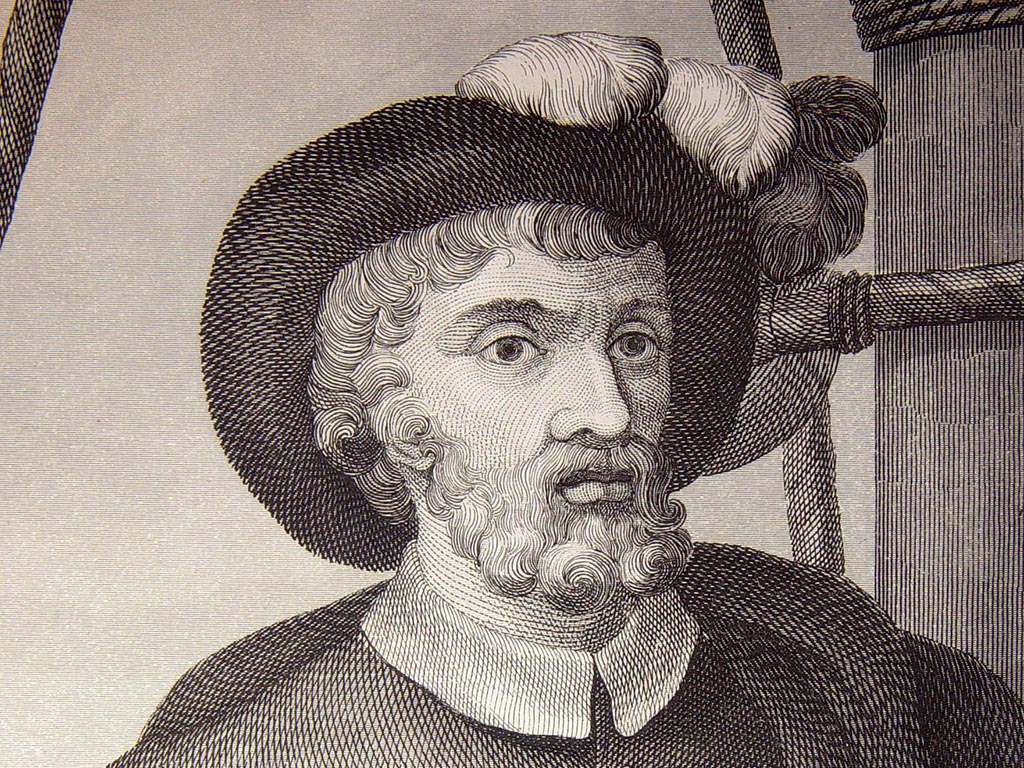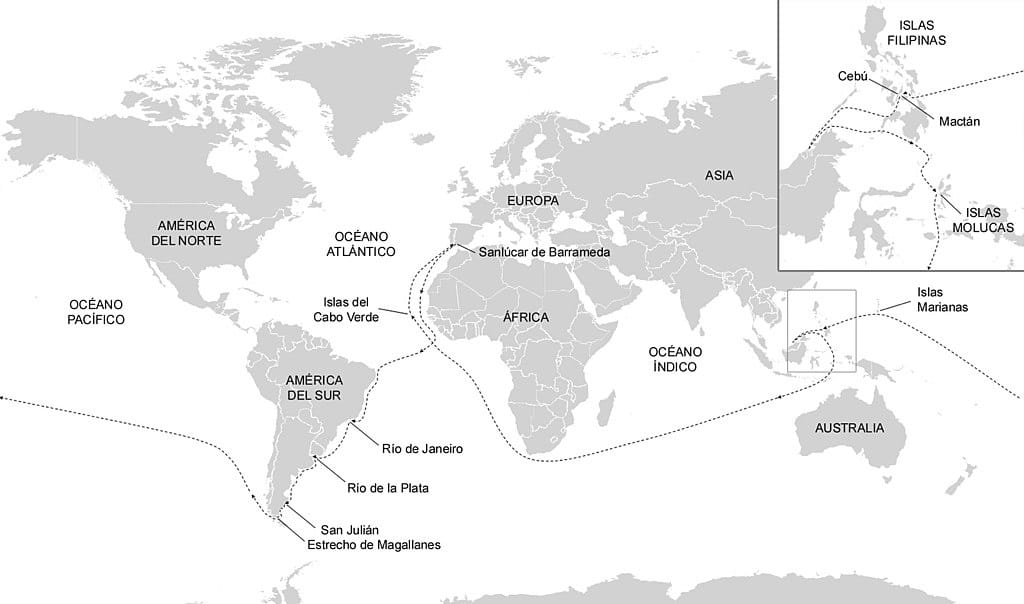
Juan Sebastián de Elcano was the navigator whose expedition completed the first circumnavigation of the globe. He had been born in the Basque town of Guetaria in 1476 and died of scurvy in the Pacific Ocean in 1526. Having participated in Cardinal Cisneros’ campaign that resulted in the conquest of Oran, he took up residence in Seville, where in 1519 he joined the expedition being organised by the Portuguese explorer Ferdinand Magellan. Equipped with five ships, its aim was to sail west and find a route around southern America to reach the Spice Islands. The fleet discovered what is now the Strait of Magellan and, enduring much hardship, was the first to cross the Pacific Ocean.
Magellan was killed in the Philippines in an attack on a native settlement and Elcano took over command of the last remaining ship, the Victoria. Reaching the Moluccas in late 1521, he sailed across the Indian Ocean and finally reached the Atlantic.
After almost three years and having covered a distance of 14,000 leagues, the ship reached Sanlúcar de Barrameda on September 6th, 1522, and Seville two days later. Although the Victoria arrived laden with spices, the expedition’s original crew of 285 had been reduced to 18 famished and weakened seamen.

The Spanish navigator thus completed the first historically documented circumnavigation of the globe, effectively the first ‘globalisation’.
The Emperor Charles V received the survivors at Valladolid, rewarding Elcano with an annuity of 500 gold ducats and granting him a crest depicting a globe with the motto Primus circumdedisti me (‘You were the first to circumnavigate me’).
In the present day the Spanish Navy’s training vessel is named after him, thus honouring his leading role in epic voyage.
Further information:
España y Portugal en la globalización. 500 años de la primera circunnavegación. Iliana Olivié, Luís Nuno Rodrigues, Manuel Gracia Santos, Pedro Seabra. Real Instituto Elcano, 2022.
Primo Viaggio Intorno al Globo Terracqueo: la expedición de Magallanes-Elcano 1519-1522. Antonio Pigafetta. Real Instituto Elcano, 2016.
Participation of the Elcano Royal Institute at the 500th Anniversary of the Circumnavigation of the World – #VCentenario